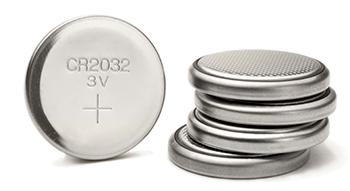The danger of button batteries
Accidental ingestion can cause long-term injuries, even death, UC Davis experts warn
Button cell batteries, the flat, coin-shaped batteries found in many toys, watches and remote controls, can do serious internal damage if accidentally swallowed. UC Davis pediatric emergency physicians warn families to keep these batteries secure and out of children’s reach.

“One of the most frightening emergencies we see are children who accidentally swallow these small batteries. Within moments of ingestion, the current from the battery can start burning through your throat, and that can kill you,” said Jonathan Kohler, medical director of pediatric trauma at UC Davis Children’s Hospital. “Kids who swallow these batteries may require emergency surgery and can have devastating long-term injuries.”
More than 1,250 cases of accidental button battery ingestion were reported from 2019-2020 to the National Battery Ingestion Hotline. More than half of those were swallowed by children under the age of 6.
Parents who suspect that their child has swallowed a button battery should contact the California Poison Control System at 800–222-1222 and immediately take their child to the emergency room.
“A swallowed button battery is one of the biggest medical emergencies there is. Every minute counts. There are some things parents and doctors can do to minimize the damage, but you have to contact poison control and go to the emergency room immediately,” Kohler said.
Kohler shares this important advice for parents:
- Call the emergency room on your way there to tell them that you’re bringing in a child who swallowed a battery so they can be ready for you when you arrive.
- If you can’t get your child to the emergency room immediately by yourself, call 911 and ask for an ambulance.
Poison Control also provides the following tips for protecting young children.
- Never leave batteries sitting out.
- Check household devices to be sure that the battery compartments are secured.
- Don’t allow children to play with batteries or products that have easily accessible batteries.
- Alert family members who wear hearing aids to keep their batteries out of the reach of small children at all times.
- Don’t insert or change batteries in front of small children.
- Don’t leave batteries where they might be mistaken for food.
- Batteries stuck in the esophagus, nose or ears must be removed as quickly as possible to avoid severe damage.



